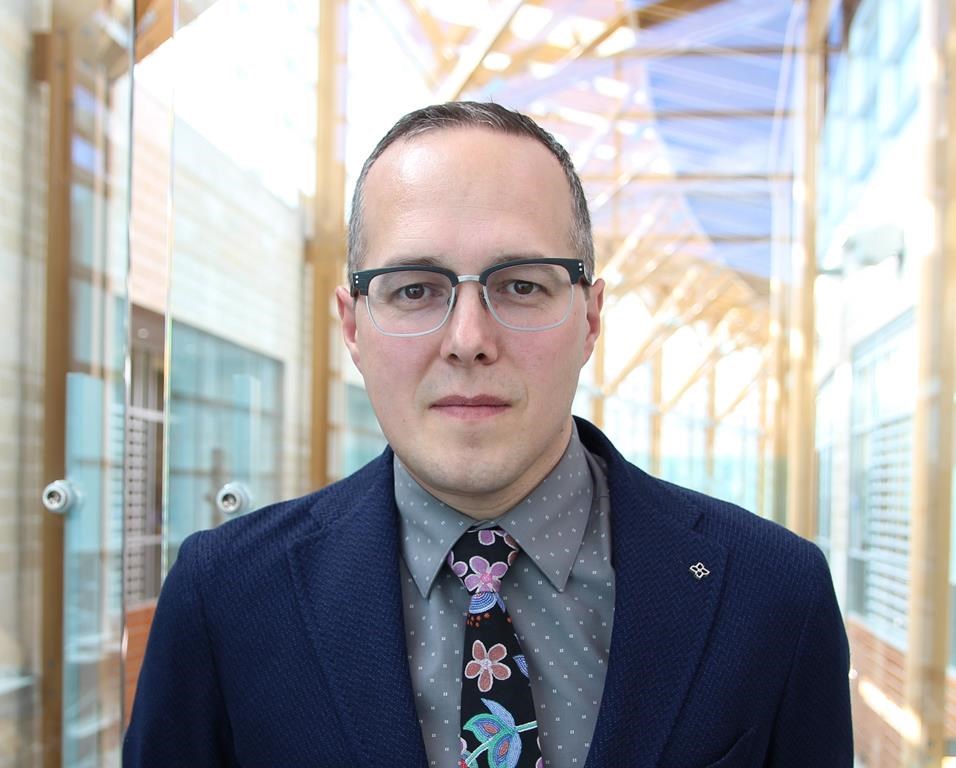TORONTO — A Toronto-based neurosurgeon who has deepened our understanding of brain tumours and a northern Ontario psychologist focused on Indigenous-led mental health care are among the winners of the prestigious Canada Gairdner Awards.
The global honours, which recognize some of the world’s most significant biomedical and health research, named Dr. Gelareh Zadeh and Dr. Christopher Mushquash as the two inaugural winners of the Canada Gairdner Momentum Award.
A spokesperson for the Gairdner Foundation says the prize was introduced this year to address a gap in the awards landscape for mid-career scientists. Zadeh and Mushquash each win $50,000.
Mushquash, a psychology professor at Lakehead University and psychologist at Dilico Anishinabek Family Care, was praised for Indigenous-led mental health and substance use research that led to culturally appropriate mental health services for First Nations communities.
Reached by phone in Thunder Bay, Mushquash called the prize a “tremendous honour” and thanked the Gairdner Foundation for a chance to bring Indigenous mental health issues to the attention of a broader audience.
“When you begin to think about people as a sum of their physical and mental and emotional and spiritual selves in a broader, more holistic kind of way, it begins to open up a lot of potential for thinking about how to support people in a way that’s much broader,” said the 43-year-old Mushquash, who is Ojibway and a member of Pays Plat First Nation.
“This is not just important for Indigenous people. I think there’s more and more awareness now within health systems in general and certainly within the public that imagining any single aspect of ourselves without the understanding of the relationship between other aspects is limiting.”
Zadeh, whose many titles include professor and neurosurgery division chair at the University of Toronto, head of neurosurgery at Toronto Western Hospital and senior scientist at Princess Margaret Cancer Centre, was recognized for gains in the molecular and genomic understanding of brain tumours, leading to better ways to classify and manage brain tumour subtypes and treat patients.
Five other innovators in the fields of artificial intelligence and microbiology each nabbed the annual international award, which bestow $100,000 to each winner for influential contributions to biomedical science.
Two of the winners come from the London-based lab DeepMind, which developed an AI system that can predict the 3D shape of protein structures and was touted in the award citation for its “enormous potential to accelerate biological and medical research.”
The foundation said AlphaFold, developed by CEO and founder Demis Hassabis and senior research scientist John Jumper, has been accessed by one million researchers and users in 190 countries and been used to predict “nearly every protein known to science.”
The three other winners are scientists Bonnie L. Bassler at Princeton University, E Peter Greenberg at the University of Washington and Michael R. Silverman, an emeritus investigator at The Agouron Institute.
Their collective discoveries about how bacteria communicate has spawned an entire field in microbiology that can lead to new ways to promote health and prevent disease, says their award citation.
“They have independently and collaboratively revolutionized the way we think about bacteria, completely overturning the paradigm that bacteria act independently of each other.”
The John Dirks Canada Gairdner Global Health Award went to José Belizán of the Institute for Clinical Effectiveness and Health Policy Argentina for work that has improved the lives of pregnant people and their children.
The citation touted Belizán’s development of low-cost global interventions during pregnancy that reduce illness and death, and promote equity in vulnerable populations.
The Gairdner Awards are nicknamed the “baby Nobels” because organizers say 96 Gairdner winners have gone on to receive Nobel Prizes.
A virtual event was set to celebrate the winners Thursday morning.
The laureates will formally receive their medal at a gala in Toronto on Oct. 26.
This report by The Canadian Press was first published March 30, 2023.



